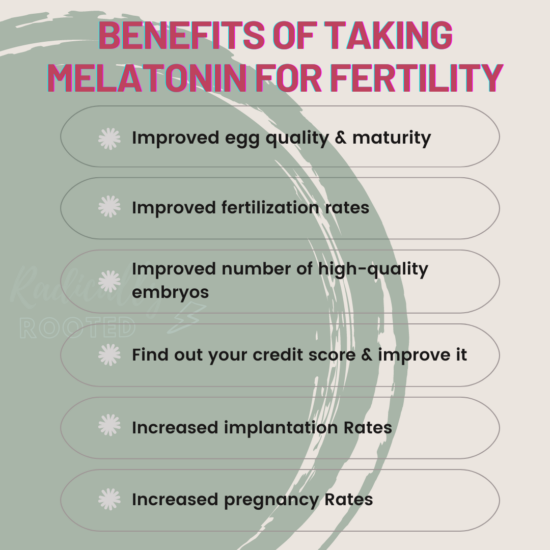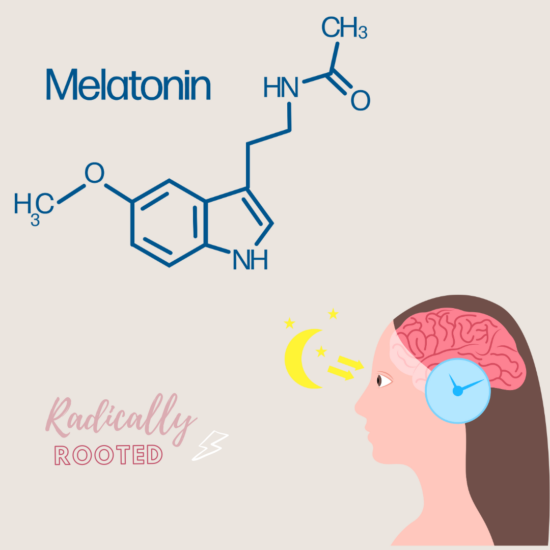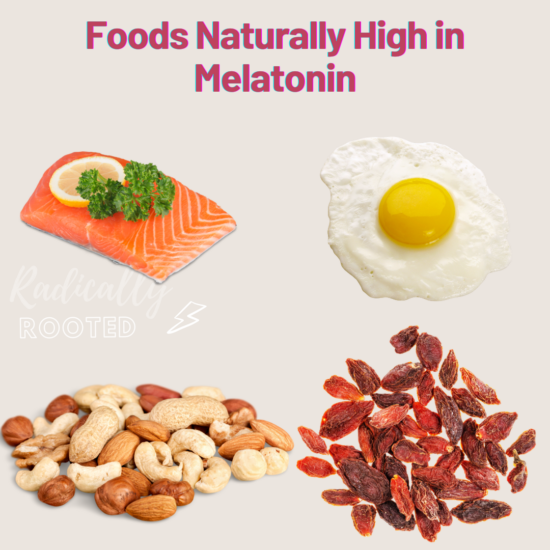Taking Melatonin to Improve Fertility
Usually, when I think of melatonin I think of a sleep aid. It reminds me of long nights of tossing and turning to the point where I need something for a little help with falling asleep. It totally surprised me to learn that melatonin is a hormone our bodies naturally produce. Who would have thought that melatonin could also have an impact on fertility? For a matter of fact, recently there has been lots of research on melatonin’s effect on fertility. The research has shown that taking melatonin to improve fertility could enhance IVF success rates, improve egg and embryo quality, and increase pregnancy rates.

For context, melatonin is a natural hormone that is produced by the pineal gland (a tiny gland located in the brain). It is naturally produced in response to darkness. Melatonin helps with the timing of circadian rhythms (24-hour internal clock) and with the sleep-wake cycle. The pineal gland secretes the highest levels of melatonin during the night and minimal amounts during the day. Melatonin can also be made synthetically in a laboratory and marketed as a dietary supplement. Current research is exploring the important roles of melatonin beyond sleep.
So, How Does Taking Melatonin Improve Fertility?
First, it’s important to look at the impact of oxidative stress on egg quality, embryo development and overall fertility outcomes. What we do know is that oxidative stress negatively impacts the number of eggs and the quality of eggs and embryos following in vitro fertilization (IVF). There are several factors that contribute to oxidative stress, including age, pollution, obesity, smoking, alcohol, and psychological stress. Oxidative stress increases with the number of factors involved. The goal when it comes to optimizing fertility, is to minimize oxidative stress as much as we can so that we have really healthy egg quality and successful embryo development.
Now, this is where melatonin comes into play. Melatonin is an antioxidant that has been shown to have oxygen-scavenging abilities, meaning that it is highly efficient in reducing oxidative stress. Melatonin is different from other antioxidants because it can penetrate all cell membranes and tissues because of its lipid-loving nature. Melatonin has been found to be particularly concentrated in the ovaries. While studies have shown time and time again that oxidative stress has negative effects on egg quality, melatonin demonstrated protective activity against oxidative stress.
It has been found that melatonin levels are lowest 0-3 days before ovulation and peak at the luteal phase. This meals that melatonin levels are dependent on the the menstrual phase. A Japanese study found that melatonin levels varied significantly between night and day shift workers, while other reproduction hormone levels did not, suggesting that the menstrual irregularity associated with shift-work could be explained by melatonin fluctuations
The ability of melatonin to promote embryo development has been reported. One study showed that melatonin supplementation had a positive effect on fertilization rates of inseminated embryos.
A study conducted on women who received 3 mg of melatonin daily from day 5 of their previous menstrual cycle until the day of egg retrieval found a significantly higher percentage of good embryos (day 2 after insemination) compared to the control (without melatonin treatment). This data suggests that melatonin may be involved in egg maturation and embryo development.
While the research into the role of melatonin to improve fertility is still evolving, existing research clearly shows its potential benefits.

How Long Does it Take for Melatonin to Improve Fertility?
The specific time it takes for melatonin to affect fertility may vary. Melatonin may begin showing effects as early as 40 days after taking it, according to the following study.
In this study, 3 g to 6 g melatonin was taken one hour before going to sleep for 40 days. The results showed that administration of melatonin significantly enhanced the number of eggs retrieved, proportion of mature oocytes, percentage of fertilized eggs and average number of transferable embryos.

What is the Recommended Dosage of Melatonin to Improve Fertility?
The recommended dosage of melatonin to improve fertility varies, but several studies have suggested the following dosages:
- A dose of 2-3 mg/day, which has been used in clinical studies for women trying to conceive or going through vitro fertilization (IVF) treatment.
- Melatonin should be taken at night due to it promoting sleepiness.
Are There Any Side Effects of Taking Melatonin to Improve Fertility?
Currently, there are no reported side effects of low-dose short-term or long-term melatonin use. The long-term effects of taking melatonin have been insufficiently studied, and ongoing research is warranted to understand its potential risks fully. Speak with a fertility specialist to help determine if melatonin supplements will benefit you.
Foods that are Naturally High in Melatonin
- Nuts
- Tart cherries & goji berries
- Fish: salmon and tuna
- Egg yolks
- Cow’s milk

Bottom Line
Reported benefits of taking melatonin prior to IVF cycle include:
- Improved oocyte quality and maturity
- Improved fertilization rates
- Improved number of high-quality embryos
- Reduced fragmentation of embryos
- Increased implantation rates
- Higher pregnancy rates
If you do plan on taking melatonin, you should definitely consult your fertility specialist first. For more advice relating to melatonin and fertility nutrition, speak to your Radically Rooted Fertility Dietitian.



